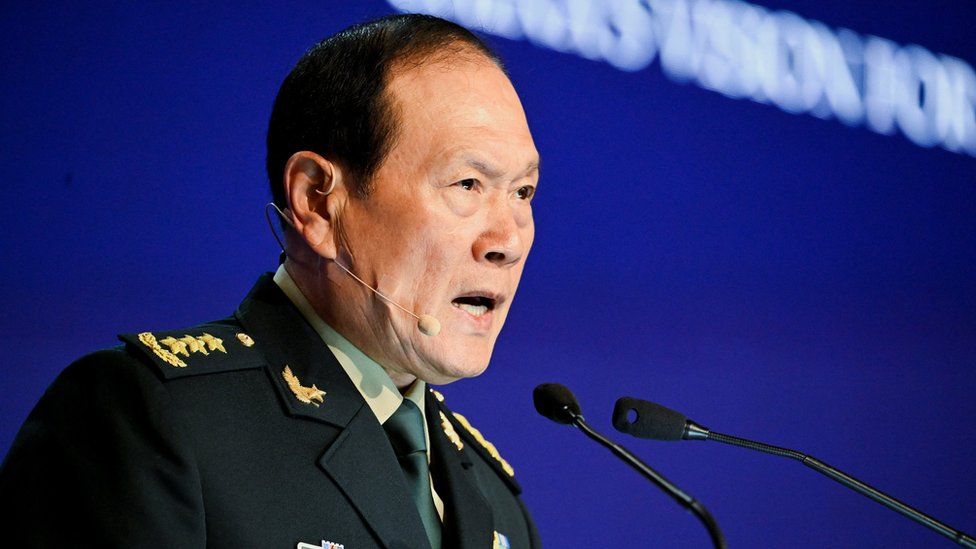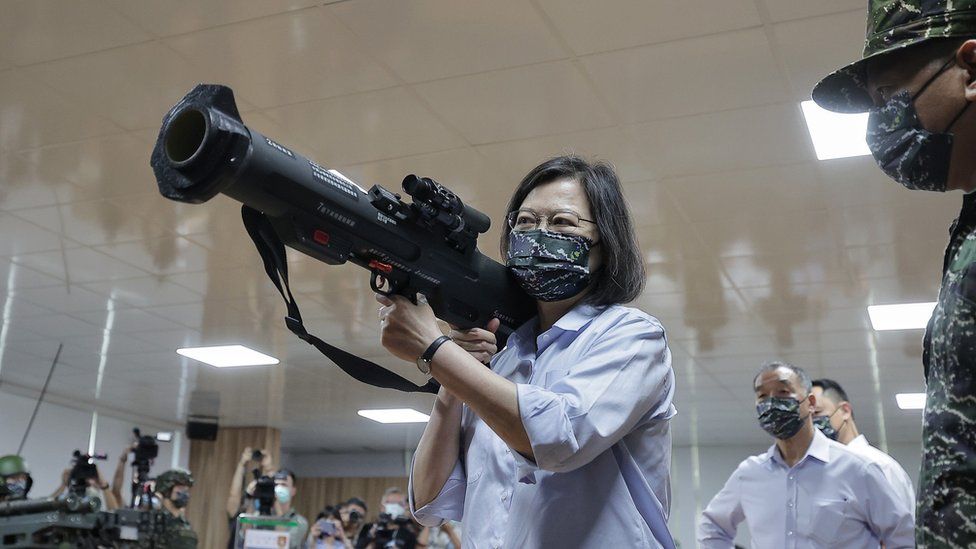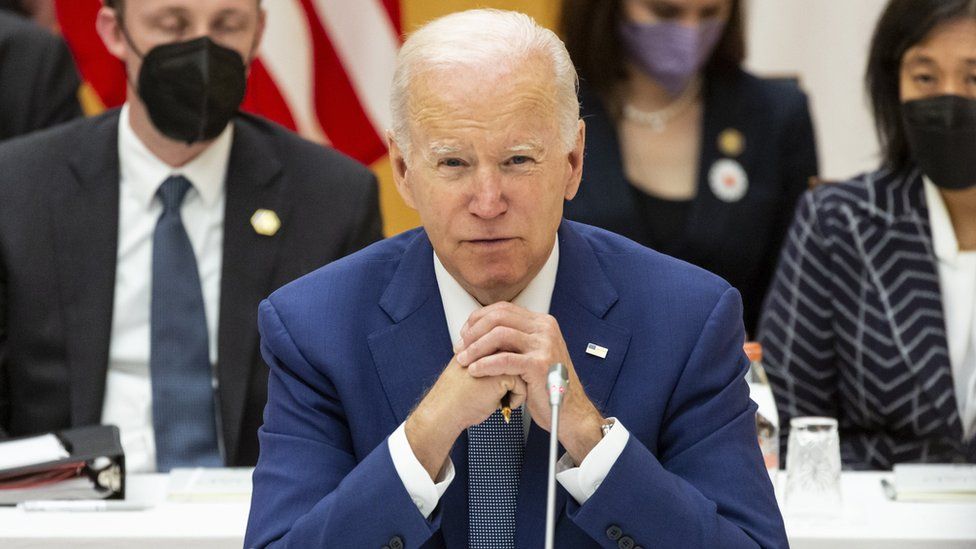Tessa Wong

On Sunday, China's Defence Minister General Wei Fenghe essentially accused the US of supporting the island's independence, saying it was "violating its promise on Taiwan" and "interfering" in China's affairs.
"Let me make this clear: if anyone dares to secede Taiwan from China, we will not hesitate to fight. We will fight at all costs and we will fight to the very end. This is the only choice for China," he said at the Shangri-la Dialogue, an Asian security summit held in Singapore.
His comments follow US President Joe Biden's recent message to China that it was "flirting with danger" by flying its warplanes close to Taiwan. He vowed to protect the island militarily if it was attacked.
Taiwan, which considers itself a sovereign nation, has long been claimed by China. But Taiwan also counts the US as its biggest ally, and Washington has a law which requires it to help the island defend itself.
The escalation in rhetoric comes as China increasingly sends warplanes into Taiwan's air defence zone - flying their largest sortie of the year just last month - while the US has sent naval ships through Taiwan's waters.
Minding the gap
One major fear is that war would be triggered if China invades Taiwan. Beijing has said in the past it could reclaim the island by force if necessary.
But most analysts say this is not likely - for now.
There has been debate over whether China has the military capability to succeed in an invasion, and Taiwan has been considerably ramping up its air and sea defences.
But many agree that Beijing recognises that such a move would be too costly and disastrous - not only for China, but also for the world.
"There's a lot of rhetoric, but the Chinese have to mind the gap very carefully if they want to launch an invasion of Taiwan, especially so close to the Ukraine crisis. The Chinese economy is far more interconnected with the global economy than Russia's is," says William Choong, senior fellow at the Institute of Southeast Asian Studies.
What does China want from the Ukraine crisis?
China's consistent position has been that it seeks "peaceful reunification" with Taiwan - something that Gen Wei reiterated on Sunday - and that it would only act if faced with a provocation.
One trigger would likely be Taiwan formally declaring independence. But this is something that its President Tsai Ing-wen has strenuously avoided, even as she insists they are already a sovereign state.
Most Taiwanese support this position, which is known as "maintaining the status quo", though increasingly a small number say they want to move toward independence.
 IMAGE SOURCE,TAIWAN PRESIDENTIAL OFFICEImage caption, Taiwan's president posed with an anti-tank rocket launcher in a government handout photo that went viral recently
IMAGE SOURCE,TAIWAN PRESIDENTIAL OFFICEImage caption, Taiwan's president posed with an anti-tank rocket launcher in a government handout photo that went viral recentlySimilarly, the US would be reluctant to be drawn into a costly military conflict in Asia, and has signalled repeatedly that they do not want war.
US Defence Secretary Lloyd Austin, who also attended the Dialogue, said in his speech that the US does not support Taiwan independence, nor does it want "a new Cold War".
"Both sides are sticking to their guns on Taiwan. They need to look tough, they don't want to be seen as rolling back or stepping back," said Collin Koh, research fellow with the S Rajaratnam School of International Studies.
"But at the same time they are very mindful about entering an outright conflict. They're looking at each other's rhetoric with eyes wide open, and both sides are trying to temper the risk."
The fact that both Gen Wei and Mr Austin met at the sidelines of the Shangri-la Dialogue was a positive sign, as it meant that both sides wanted to show "they are still willing to sit down and talk it out, come to a consensus, and agree to disagree," said Mr Koh.
This, he said, would likely lead to more operational discussions between the two militaries that would reduce the possibility of on-the-ground miscalculations that could lead to a conflict, and an overall "reinvigoration of dialogue" that was missing during Donald Trump's administration.
 IMAGE SOURCE,EPAImage caption, Mr Biden's recent remarks on Taiwan were seen by some as an apparent shift in tone in US policy
IMAGE SOURCE,EPAImage caption, Mr Biden's recent remarks on Taiwan were seen by some as an apparent shift in tone in US policyThat said, both China and the US are expected to continue their rhetoric for the foreseeable future.
China may even step up its "grey zone warfare" designed to exhaust Taiwan's military forces and patience - such as sending more warplanes - or disinformation campaigns, said Dr Ian Chong, a China expert with the National University of Singapore.
Taiwan has previously accused China of waging disinformation campaigns in the lead up to the island's elections, and the island will be holding important local elections at the end of the year.
For the US and China at least, "there is no political will to change their positions" for now, particularly with significant events on the horizon - the US mid-term elections in November, and China's 20th Communist Party congress in the second half of the year where President Xi Jinping is expected to further consolidate power.
"The bright side is that neither party is willing to escalate," said Dr Chong.
"But non-escalation doesn't mean we will get to a better position. So we are all stuck in this position for a while."
No comments:
Post a Comment